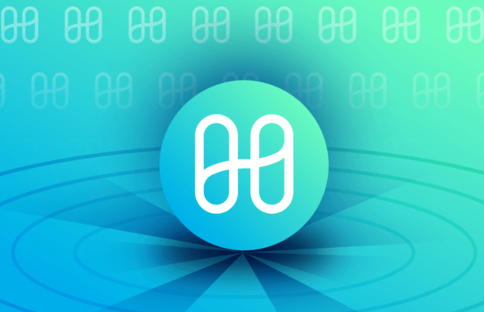
Intermediate
How to build a subgraph and deploy it locally
This tutorial will guide you through the process of building and deploying a subgraph on a local node using the graph-cli and docker-compose. The tutorial begins by providing instructions for installing the graph-cli, then it goes on to explain how to build a local graph-indexer node by copying and pasting a provided docker-compose file and modifying it to match the network you want to connect to. The tutorial then goes on to explain how to run the indexer node using docker-compose and how to check the logs to ensure the node is syncing with the Harmony chain. The tutorial assumes that the reader has basic knowledge of using command line interface and have installed the docker and docker-compose in the system.
Install the graph-cli
GitHub – graphprotocol/graph-tooling: Monorepo for various tools used by subgraph developers.
Build your own graph-indexer local node
Copy paste the below docker-compose file and replace services.graph-node.environment.ethereum accordingly to the network: mainnet s0 : mainnet:archive,traces:https://a.api.s0.t.hmny.io mainnet s1 : mainnet:archive,traces:https://a.api.s1.t.hmny.io
mainnet s0
mainnet s1
version: "3"
services:
graph-node:
container_name: hmy_indexer
image: graphprotocol/graph-node:latest
ports:
- "8000:8000"
- "8001:8001"
- "8020:8020"
- "8030:8030"
- "8040:8040"
depends_on:
- ipfs
- postgres
environment:
postgres_host: postgres
postgres_user: graph-node
postgres_pass: let-me-in
postgres_db: graph-node
ipfs: "ipfs:5001"
GRAPH_ETH_CALL_BY_NUMBER: 1
GRAPH_ALLOW_NON_DETERMINISTIC_IPFS: 1
ethereum: "mainnet:archive,traces:https://a.api.s0.t.hmny.io"
RUST_LOG: info
ipfs:
container_name: ipfs
image: ipfs/go-ipfs:v0.4.23
ports:
- "5001:5001"
volumes:
- ./data/ipfs:/data/ipfs
postgres:
image: postgres
ports:
- "5432:5432"
command: ["postgres", "-cshared_preload_libraries=pg_stat_statements"]
environment:
POSTGRES_USER: graph-node
POSTGRES_PASSWORD: let-me-in
POSTGRES_DB: graph-node
volumes:
- ./data/postgres:/var/lib/postgresql/data
and run your indexer node
docker-compose up -d Creating network "thegraph_default" with the default driver Creating ipfs ... Creating postgres ... Creating postgres done Creating ipfs ... done Creating indexer ... Creating indexer ... done
docker logs hmy_indexer -f should show the indexer synching with the harmony chain
docker logs hmy_indexer -f Jul 29 05:33:22.849 INFO Graph Node version: 0.23.1 (2021-06-23) Jul 29 05:33:22.861 INFO Generating configuration from command line arguments Jul 29 05:33:22.909 INFO Starting up Jul 29 05:33:22.911 INFO Trying IPFS node at: http://ipfs:5001/ Jul 29 05:33:22.928 INFO Creating transport, capabilities: archive, traces, url: https://api.s0.pops.one, provider: mainnet-rpc-0 Jul 29 05:33:22.948 INFO Successfully connected to IPFS node at: http://ipfs:5001/ Jul 29 05:33:23.680 INFO Connecting to Postgres, weight: 1, conn_pool_size: 10, url: postgresql://graph-node:HIDDEN_PASSWORD@postgres:5432/graph-node, pool: main, shard: primary Jul 29 05:33:23.716 INFO Pool successfully connected to Postgres, pool: main, shard: primary, component: Store Jul 29 05:33:23.721 INFO Setting up fdw, pool: main, shard: primary, component: ConnectionPool Jul 29 05:33:23.728 INFO Running migrations, pool: main, shard: primary, component: ConnectionPool Jul 29 05:33:24.748 INFO Migrations finished, pool: main, shard: primary, component: ConnectionPool Jul 29 05:33:24.748 INFO Mapping primary, pool: main, shard: primary, component: ConnectionPool Jul 29 05:33:24.767 INFO Connecting to Ethereum to get network identifier, capabilities: archive, traces, provider: mainnet-rpc-0 Jul 29 05:33:25.030 INFO Connected to Ethereum, capabilities: archive, traces, network_version: 0x6357d2e0, provider: mainnet-rpc-0 Jul 29 05:33:25.117 INFO Creating LoadManager in disabled mode, component: LoadManager Jul 29 05:33:25.119 INFO Starting block ingestors Jul 29 05:33:25.119 INFO Starting block ingestor for network, network_name: mainnet Jul 29 05:33:25.120 INFO Starting job runner with 1 jobs, component: JobRunner Jul 29 05:33:25.126 INFO Starting JSON-RPC admin server at: http://localhost:8020, component: JsonRpcServer Jul 29 05:33:25.130 INFO Starting GraphQL HTTP server at: http://localhost:8000, component: GraphQLServer Jul 29 05:33:25.130 INFO Starting index node server at: http://localhost:8030, component: IndexNodeServer Jul 29 05:33:25.130 INFO Started all subgraphs, component: SubgraphRegistrar Jul 29 05:33:25.130 INFO Starting metrics server at: http://localhost:8040, component: MetricsServer Jul 29 05:33:25.131 INFO Starting GraphQL WebSocket server at: ws://localhost:8001, component: SubscriptionServer Jul 29 05:33:25.258 INFO Downloading latest blocks from Ethereum. This may take a few minutes..., provider: mainnet-rpc-0, component: BlockIngestor Jul 29 05:33:33.600 INFO Syncing 4 blocks from Ethereum., code: BlockIngestionStatus, blocks_needed: 4, blocks_behind: 4, latest_block_head: 12886125, current_block_head: 12886121, provider: mainnet-rpc-0, component: BlockIngestor Jul 29 05:33:35.252 INFO Syncing 1 blocks from Ethereum., code: BlockIngestionStatus, blocks_needed: 1, blocks_behind: 1, latest_block_head: 12886126, current_block_head: 12886125, provider: mainnet-rpc-0, component: BlockIngestor
A few component are installed
Management: https://localhost:8020/ where subgraph are being created/deployed/deleted
Metrics / playground: https://localhost:8030/
Visit your playground using the URL http://127.0.0.1:8030/graphql/playground and start playing around with graphQL API.
An example of query you can use to show subgraph currently being indexed would be :
query {
indexingStatuses {
subgraph
entityCount
fatalError {
handler
}
nonFatalErrors {
handler
}
chains {
network
latestBlock {
number
}
chainHeadBlock {
number
}
lastHealthyBlock {
number
}
}
}
}
Right now of course, the result is empty
{
"data": {
"indexingStatuses": []
}
}
Our first subgraph
lets use blocklytics/ethereum-blocks subgraph as example
git clone https://github.com/blocklytics/ethereum-blocks cd ethereum-blocks
Edit package.json file and add these lines
"create-harmony": "graph create --node http://localhost:8020 harmony/blocks", "deploy-harmony": "graph deploy --node http://localhost:8020 --ipfs http://localhost:5001 harmony/blocks",
It is highly recommended to minimize the number of blocks to be indexed to avoid putting load on the RPCs and to speed up the usage of your subgraph/application
Update the manifest
Update the manifest subgraph.yaml file datasources[0]['network'] from rinkeby to mainnet or testnet accordingly to how you edited the network in your docker-compose.yaml if there is no need to index the entire blockchain, you can add an attribute startBlock to speed up the sync : datasources[0]['source']['startBlock']
Also, update the subgraph.yaml apiVersion: 0.0.5
It is highly recommended to minimize the number of blocks to be indexed to avoid putting load on the RPCs and to speed up the usage of your subgraph/application
Create and deploy the subgraph
yarn codegen yarn build yarn create-harmony yarn deploy-harmony
Sync begins and you are good to query your subgraph http://localhost:8000/subgraphs/name/harmony/blocks/graphql
Note that the above example query should now show your something similar to the below
{
"data": {
"indexingStatuses": [
{
"chains": [
{
"chainHeadBlock": {
"number": "12887470"
},
"lastHealthyBlock": null,
"latestBlock": {
"number": "10701810"
},
"network": "testnet"
}
],
"entityCount": "1812",
"fatalError": null,
"nonFatalErrors": [],
"subgraph": "QmVDqqTJZM3ZHizSubG2H5b1vQ1Jp7iMD6Sc94A9zyRnAK"
}
]
}
}
data['indexingStatuses'][0]['chains'][0]['latestBlock']['number'] will indicate the last block synched